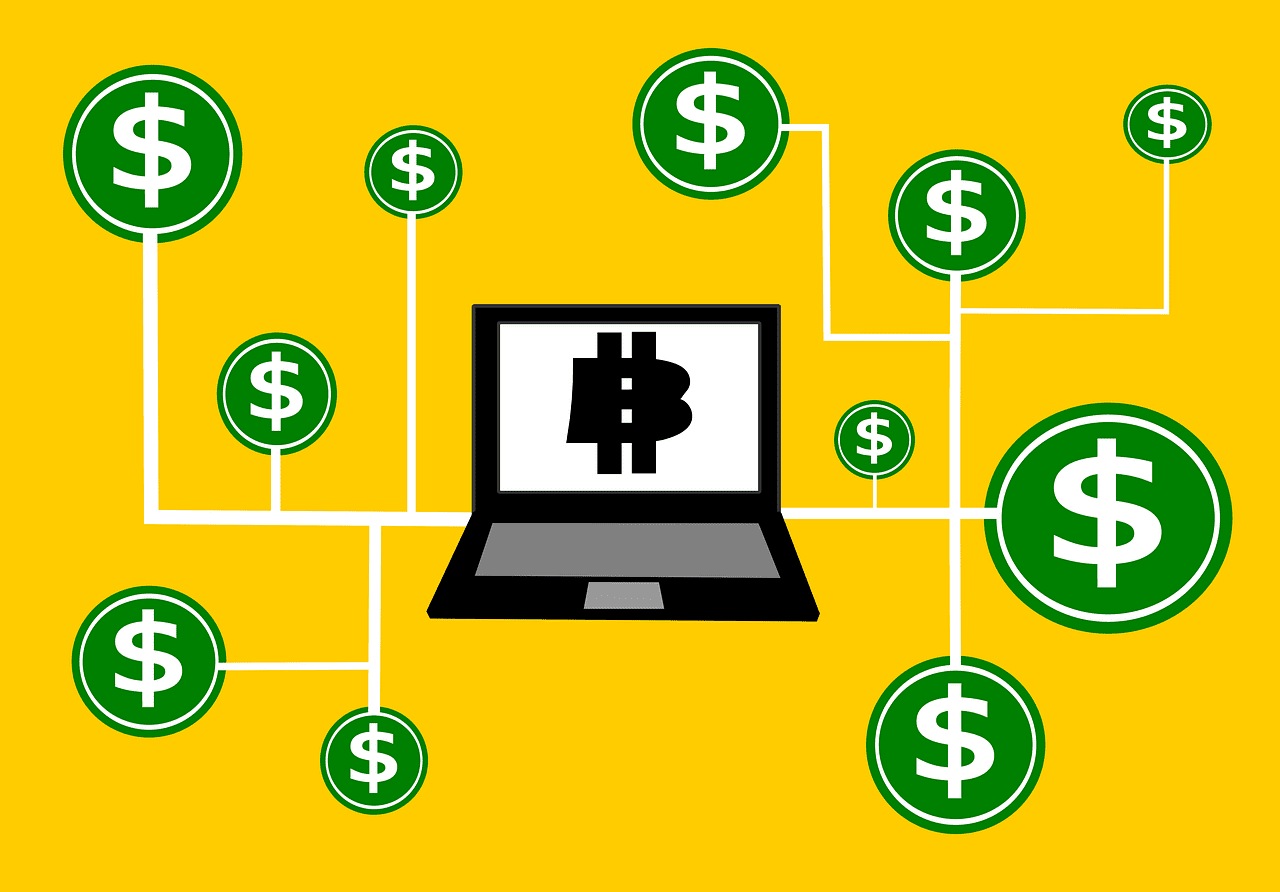Content
Most CRM systems will come equipped with heaps of automated features that allow users to reduce admin-heavy tasks, like manually pulling together reports or managing your sales pipeline. This will free up time to focus on other business priorities, like improving customer relationships, retention and driving more sales. Customer relationship management software helps automate and manage the customer lifecycle for sales and marketing departments. CRM software consolidates customer information into a single repository so users can better organize and manage relationships, automates common processes, and provides tools to monitor performance and productivity.

You can store and analyze customer data, all while engaging with them to retain loyal users and attract new users. The core function of a CRM is to organize data, whether through a customer profile database, through communication channels for leads, or through internal collaboration tools. But, it’s the sum of all that data that reveals another benefit of CRM – the insights to make smarter business decisions. Another benefit of CRM software is the opportunity to develop more leads and increase customer sales. Our research found that 94% of customers look to make a purchase from the same source they have previously, so how you nurture and monitor your customer relationships matter.
What Is an Example of Customer Relationship Management?
Smart social search and market segmentation tools help you laser down to the most important opportunities and smartly handle them. Data organization and reporting features show what’s working, what’s not, and where you can take strategy in the future. You can use triggers to automate tasks when specific criteria are met.
It also limits the number of custom fields that can be added to each record. You can organize leads, prioritize and reference them, and assign them to specific teams or team members . Meanwhile, thePersonasfeature can help you dig deep to understand the mindsets of different customer strata, then segment them for better marketing strategy.
Improved efficiency
All of your administrative tasks — such as manual data entry, hunting for email chains, recording conversations, and saving contact information — will be simplified with the implementation of a CRM. Now that you have a list of your goals and those of your team, you are equipped to make a list of the CRM features that would best help you reach them. Be careful to ask team members to list their must-have and nice-to-have features separately. This will help you stay within your budget if compromises must be made. To do so, determine how many people within your organization would need to use the CRM actively and determine your overall budget for a CRM.
Over the last few years, we’ve transformed from a simple email newsletter tool to a multi-channel platform with CRM and data science at the center. Email is still the core of our business, but the platform is the future. Here’s a rundown of the benefits: https://t.co/WxgT59OYob
— Ben Chestnut (@benchestnut) November 24, 2020
CRM software allows businesses to track customer interactions, store data securely, share information with colleagues, and manage and acquire customer leads. This will allow you to build a repeatable sales cycle, and refine it to get the best possible results. All your interactions with prospects and customers—email, phone calls, chatbots, and more—can be tracked and managed with CRM.
The CRM process shouldn’t be about working harder but about working smarter so that your customers get what they want, and you do too. While it is vital for modern clinics and hospitals to invest in medical equipment and trained staff, it is equally vital for them to take care of the interests and feelings of their customers. Thus, build long-term relationships with them, protect their data, and prevent errors. Automated, synchronized data transfer also increases the overall efficiency of your business by ensuring correct order fulfillment and timely communication. This gives your online store a real competitive edge over other competitors in the same market. Without CRM system integration, your online store likely faces problems due to simple typos and other data-entry errors.
How Do Businesses Choose Which CRM to Go With?
The new Lightning platform is real fast, and it’s component-based, drag-and-drop user interface takes customization to the outer limits. By showing you what actions people take and what features they like best, Mixpanel helps you focus on your strengths and refine your offering. Integrations with Zendesk, collaborative crm Salesforce, Zoho, and a host of other CRMs ensure MixPanel can slot into your existing workflow. CRM website integration allows you to develop a more accurate portrait of customer and lead behavior. The platform’s lead scoring assigns a value from 0 to 100 for each and every lead you have.
While most small-business CRM plans start at around $10 to $50 a month, those prices can be deceptive. If your company needs a CRM for 50 people to use, you must often multiply that per-seat price by the number of people who will use the CRM. To choose a CRM for your company, first evaluate your budget, goals and the features you need in a CRM.
Miscalculated data should not be the reason why you cannot succeed, thanks to the CRM system, this is no longer a possibility. CRM systems store information in only one place which leads to improved analysis of the data as a whole. Easily integrated with different tools or plugins, you are able to generate automatic reports to maximize your time.
- It should be noted up front that it’s ‘not really’ a CRM per se, as evidenced by its lack of sales pipeline features.
- When a large number of user groups have access to the CRM, you must be able restrict access to certain pages, forms, fields, attachments based on the appropriate authority.
- In the end, you can discover the right integration that supports your needs now and in the future.
- To minimize CRM limitations, ensure your staff is well-trained and accustomed to using your CRM consistently.
- A CRM works to capture all of that information so that anybody in your company can take the proverbial baton and run with it.
CRM is often used to refer to technology companies and systems that help manage external interactions with customers. Our research shows that Zoho CRM is the best option for small businesses, thanks to its plentiful features for sales, marketing, and service, all in an easy-to-use interface at a reasonable price. Some other options are Freshsales Suite, for its robust sales features, and monday.com, for its serious customizability. Return-on-investment for CRM software is around $8.71 for every dollar spent, according to Nucleus Research.
Lead Management
For sales, you can use segmentation to filter customer type, location, or deal stage, calibrating your pitch and outreach timing, and increasing the likelihood of making a conversion or winning a deal. Sales reports provide detailed views of who your best customers are, where your leads come from, sales pipeline pain points, customer motivation for purchasing from you, and more. CRM systems can dramatically improve customer experience, helping you retain existing customers and turn leads into new customers. With a CRM system, marketing campaigns can target your potential customers with only relevant information for them. This can be based on their previous search or purchase histories or demographics. Marketing can spend more time creating campaigns that resonate with their audience, analysing data, and testing different strategies based on analytics.
The benefits of CRM for small businesses are numerous because this tool allows you to develop your business. If your objective is to manage all the communications, you won’t be able to do this properly without CRM solutions. With so much customer information at your fingertips, a CRM system makes it difficult https://xcritical.com/ not to impress your clients. When issues or questions arise, you’ll be effectively prepared to respond faster and more efficiently. You’ll also be able to better anticipate the needs of your customers, such as when they’re ready for another shipment or new products they may be interested in.
An efficient CRM is deployed across the customer journey and overlaps with many, if not all departments. It does so by integrating with functionalities to support the key processes across departments. If a company goes out of business or faces an acquisition, access to customer information may become compromised. A business might have compatibility issues when and if it migrates to a different vendor for this kind of software. Also, cloud-based CRM programs typically cost more than in-house programs. Customer relationship management includes the principles, practices, and guidelines an organization follows when interacting with its customers.
Businesses with a marketing team
A lead management feature will help you to identify your leads and the actions they’ve taken along the sales cycle. Through the lead management process, you’ll be able to score your leads and, if needed, filter them off to a different member of your team to turn select leads into customers. A CRM with built-in social media monitoring features can save your marketing team time, because they won’t have to switch platforms to perform the essential task of monitoring your company’s social media. CRM integration offers business owners a centralized location for their customer data. This enhances all marketing activities, from planning to targeting and executing. When your customers receive personalized email marketing, the kind of marketing that’s only possible with CRM, it will have a direct impact on your online shop’s revenue.
Any employee from customer service to sales representatives can benefit from CRM integration. With easy access to customer details, including orders, payments, and even products viewed, the sales team can upsell or cross-sell in a more effective manner. This can even apply to B2B eCommerce sites, whose sales teams are empowered to negotiate payment terms based on a client’s past payment history. The activity management feature makes the life of sales reps easier by keeping a record of all their activities including performed & scheduled ones. This functionality of CRM reduces the chance of missing an opportunity.
How to Track the Success of Your CRM Strategy
A CRM solution helps streamline the sales process so that each customer gets what they want, how they want it, and in the most timely fashion. From lead generation to pipeline conversion, the right CRM matches each customer up with the best agent to meet their needs. Everyone who has access to your CRM can work together through this shared record. For example, when a salesperson speaks with a customer and learns more about them, they can fill in certain fields in that person’s record or make notes on their file.
Generate predictions for future sales figures or projected revenue based on past and present data/trends. Common features show up in the majority of systems on the CRM market, but not all of them. These features often indicate a more robust CRM system, rather than a basic plan or offering. This video walks through what some of the key features are and how having them in your toolbox empowers your business. There are hundreds out there, varying in features, functionality, and price.
Explore the 6 biggest benefits of CRM.
It’s built to manage daily operations, automate marketing, manage your sales funnel—just like a good ol’ operational CRM should do. On the collaborative front, the platform’s team-based features are broad and bountiful, and include an overview of your sales activity, tracking tasks and processes, and assigning follow-ups. The free version of HubSpot has some pretty robust inbound marketing tools. It’s also easy to assign and track leads, monitor the sales process, and record customer interactions across all channels. Retention and churn rates are extremely important determiners for a company’s success; customer churn is a major obstacle to business growth. CRM tools like sentiment analysis, automated ticketing, and customer support and customer service automation can dramatically improve your retention by letting human agents defuse problems.
